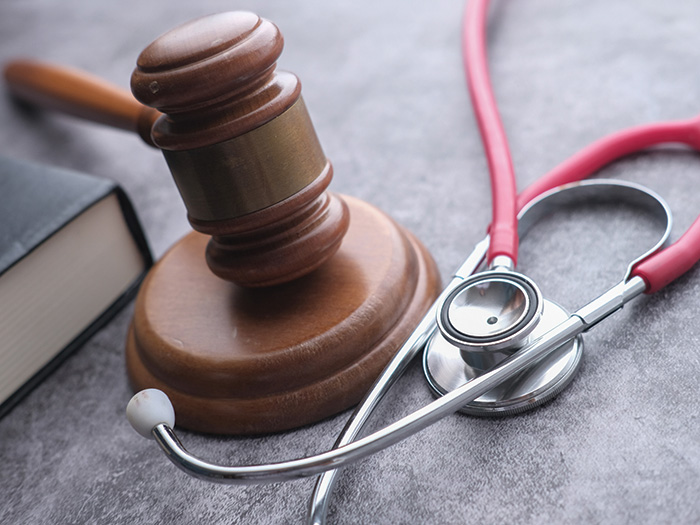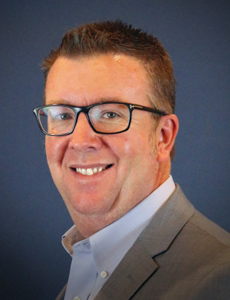As the COVID-19 pandemic winds down, workers’ comp executives wonder what the lasting effects of presumptions will be.

As the one-year mark of the COVID-19 pandemic in the United States has come and gone, vaccine distribution continues to ramp up and hope for a return to normalcy grows.
Advertisement
Even as things are starting to return to normal, a likely lasting change to the workers’ compensation industry has begun. The windfall of COVID-19-related presumptions in many states is top-of-mind among workers’ comp executives, many of whom fear a slippery slope.
A February 2021 NCCI COVID legislative report lists 28 states as having some type of special bill, law or order related to COVID affecting workers’ comp.
Many of these are presumptions mandating coverage under workers’ comp for COVID treatment. Particularly in Q2 and Q3 of 2020, workers’ comp organizations were scrambling to keep pace.
“Compliance and regulatory updates are always paramount, but COVID put a spotlight on that and caused efforts that were already important to become critical,” said Matthew Zender, SVP of workers’ compensation strategy for AmTrust.
“From our perspective, what mostly changed about that was just how fluid it was. We found ourselves receiving, in some cases, multiple updates a day in a variety of different states and trying to create a medium to allow for appropriate absorption of that fluid data and make sure that not only were we absorbing it, but we were also responding to it in a manner that was consistent with the intent of the language. So, it was an extremely intellectually interesting period of time.”
Now that activity has slowed considerably, AmTrust is one of the companies looking forward to the future and assessing what effect this new landscape of presumptions will have for the industry in the years to come.
“I think anytime that you create a new standard or a new area for compensability, it’s reasonable to ask whether or not that is a standard that will now be applied to successive outbreaks in other areas. Once that door is open, will other things find their way through?” Zender posited.
“I think it’s one of the reasons there were concerns from the industry about allowing these COVID presumptions to find their way into the system. It’s not because the industry didn’t feel they had the ability to assist. Most people in the industry felt that to the extent we should help out. The problem is, where does that stop? We have an industry that, for a hundred years, didn’t have these types of claims in it, and now we have these types of claims.”
Communicable Disease Coverage: The New Normal?
Indeed, the COVID-19 pandemic has set a new precedent for an industry that for more than a century never covered communicable diseases.

Phil Walls, chief clinical officer, myMatrixx
Questions abound as to how this precedent could be used. For his part, Steven Davis, chief legal officer for One Call, believes presumptions could grow but doubts they will expand to the extent that communicable diseases of a more common, less impactful nature will be a part of that growth.
“Any time you have something novel, such as presumption laws around coronavirus, there’s always concern around the slippery slope,” Davis explained.
“The states that have enacted presumptions laws have done so carefully. I’m not overly concerned about a flood of presumptions being added. However, now that we have the precedent, there’s a greater likelihood we will see other presumptions in the future.”
As for the type of presumptions that could arise post-pandemic, Davis also doubts it will become a fight to exclude typical seasonal illness: “I don’t expect a panacea like the flu or the common cold. I think the presumptions in the future will be industry specific.”
He added possible industry-specific presumptions would be similar to cancer presumptions for firefighters but could become granular, such as a particular manufacturing process tied to a special condition.
Phil Walls, chief clinical officer for myMatrixx, meanwhile believes the potential for communicable diseases to spark additional presumptions is more likely than not. “I think at a minimum that other communicable diseases may be considered for presumption for certain defined workers,” he said.
“Unlike an accidental needle stick exposure, where the risk of contracting HIV is a direct consequence, development of COVID or any other communicable disease may be likely related to a workplace or job role, but rarely will contraction of the disease be able to be directly traced to exposure on the job. Hence the need for presumption is evident, but the application to communicable disease may have unintended consequences.”
A Wave of New Expenses
With respect to other lasting changes that COVID presumptions might garner, Walls expressed the data suggests higher pharmacy costs could be on the horizon.
“We are seeing clients start to approach 90 and even 100% generic fill rates for the traditional drugs used in workers’ compensation,” he said. “Development of new drugs such as molnupiravir [an oral medication in development that can block transmission of COVID] may potentially lead to even higher cost, brand-only medications for a period of time.”
However, medications are just the beginning.

Matthew Zender, senior vice president, WC product manager, AmTrust Financial Services
A research brief from WCRIB estimated that the cost of a conclusive COVID presumption for essential critical infrastructure workers in California would be “$2.2 billion to $33.6 billion with an approximate mid-range estimate of $11.2 billion, or 61% of the annual estimated cost of the total workers’ compensation system prior to the impact of the pandemic.”
While the ongoing costs of treating COVID patients is a major concern for the industry as the pandemic resolves, positive lasting changes may occur.
Michele Tucker, VP of enterprise comp operations at CorVel, found that the exponential growth in presumptions in 2020 resulted in better focus on how workers’ comp can be an essential help as opposed to a hindrance.
Tucker explained further that CorVel was undergoing a change in January 2020, right before COVID hit, to reduce adversarial perception in the claims process, and COVID became a way to test the theory.
“Universally, I think there’s been a good opinion about COVID and employers taking on responsibility when there was exposure in the workplace,” she said.
“I think that would have happened naturally, the preponderance of employers in our experience were open-minded and adopted a reasonable approach early on even without legislative changes.”
Advertisement
Davis agreed with Tucker’s sentiment, noting that “presumptions are here to stay” along with additional safety measures such as distancing in the workplace, sanitization and the focus on mental health — all of which have received near-constant attention during the pandemic.
“These presumptions add tremendous comfort to those on the frontlines, and for those that might be more skeptical, I think it adds tremendous opportunity to find creative solutions,” he said.
As is typically the case in essential industries, a sea change will push workers’ comp to find those creative solutions, and the companies that do will see increased success in value for health care dollars and patient outcomes.
The role that COVID presumptions have to play in that ongoing quest for innovation remains to be seen, but many believe it is unwise to sit on our laurels once the crisis passes.
As Zender put it, “This is a formative period for the industry. There have been plenty of near misses prior to COVID-19; it’s part of nature, these things will happen again.” &
"urgent" - Google News
April 18, 2021 at 05:14PM
https://ift.tt/3gju7kM
Workers' Compensation's Urgent Reckoning with COVID-19 Presumption Laws - Workers Comp Forum
"urgent" - Google News
https://ift.tt/2ya063o
https://ift.tt/3d7MC6X
urgent
Bagikan Berita Ini















0 Response to "Workers' Compensation's Urgent Reckoning with COVID-19 Presumption Laws - Workers Comp Forum"
Post a Comment